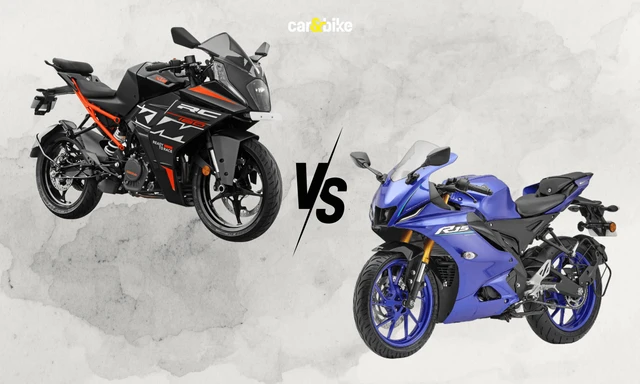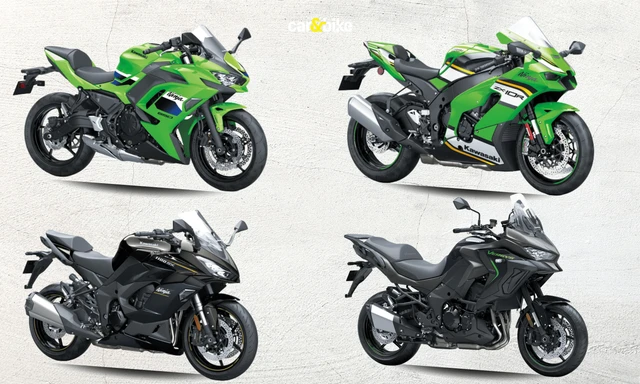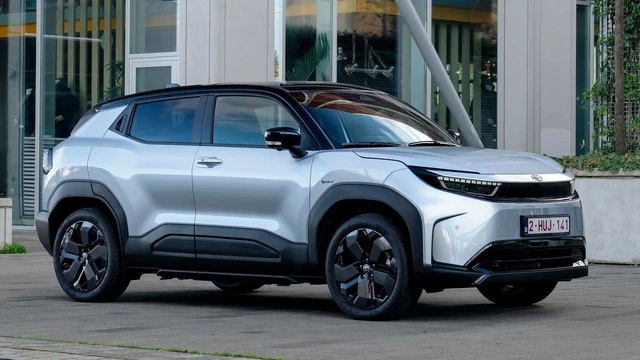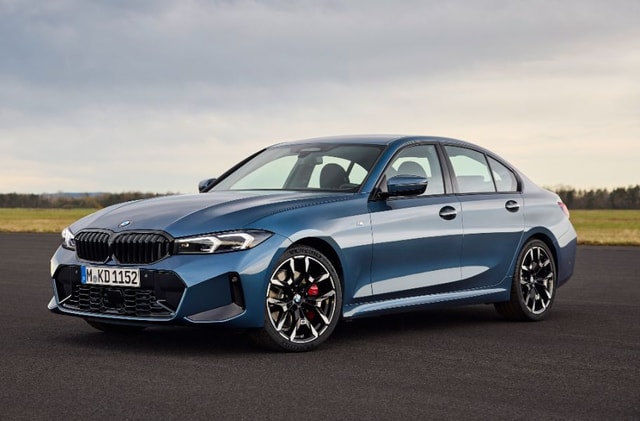Nigerian Entrepreneur Builds Electric Mini-Buses In Clean Energy Push

Nigerian entrepreneur Mustapha Gajibo has been converting petrol mini-buses into electric vehicles at his workshop, but he is now going a step further to build solar battery-powered buses from scratch in a push to promote clean energy and curb pollution.
Africa's top producer and exporter of crude oil has heavily-subsidised gasoline and a patchy supply of electricity -- a combination that might discourage anyone from investing in electric vehicles.
But Gajibo, a 30-year-old university drop-out and resident of Maiduguri city in Nigeria's northeast, is undaunted. He says rising global oil prices and pollution make electric vehicles a worthwhile alternative in Nigeria.

At his workshop, he has already stripped combustion engines from 10 mini-buses, powering them with solar batteries. The buses, which have been operating for just over a month, cover a distance of 100 km on a single charge, he said.
His most ambitious project is building the buses from scratch. They will be equipped with solar panels and batteries.
"As I am speaking to you now at our workshop, we are building a 12-seater bus which can cover up to 200 kilometres on one charge," Gajibo said.
"Before the end of this month we are going to unveil that bus, which will be the first of its kind in the whole of Nigeria," he said, adding that his workshop had capacity to produce 15 buses a month.
In Nigeria, like most of Africa, electric vehicles have not yet gained traction because they are more expensive and there is little electricity and no infrastructure to charge vehicles.
For now, Gajibo has one charging station powered by solar.
There are other hurdles like foreign currency shortages that make it difficult to import parts. So, he is looking to source them in Nigeria.
"We have been substituting some materials with local materials to bring our costs down and maximise profit," said Gajibo.
(This story has not been edited by NDTV staff and is auto-generated from a syndicated feed.)
Latest News
 Jafar Rizvi | Jan 9, 2026KTM RC 160 vs Yamaha R15: Specifications, Features, Prices ComparedKTM’s new RC 160 goes head-to-head with the Yamaha R15 in the entry-level sportbike category. Here is how the two fare on paper.1 min read
Jafar Rizvi | Jan 9, 2026KTM RC 160 vs Yamaha R15: Specifications, Features, Prices ComparedKTM’s new RC 160 goes head-to-head with the Yamaha R15 in the entry-level sportbike category. Here is how the two fare on paper.1 min read Amaan Ahmed | Jan 9, 2026Suzuki E-Access Launched At Rs 1.88 Lakh; LFP Battery Promises 95 KM RangeOriginally confirmed for a June 2025 launch, Suzuki's first electric two-wheeler for India has finally arrived almost a year after making its global debut at Auto Expo 2025.3 mins read
Amaan Ahmed | Jan 9, 2026Suzuki E-Access Launched At Rs 1.88 Lakh; LFP Battery Promises 95 KM RangeOriginally confirmed for a June 2025 launch, Suzuki's first electric two-wheeler for India has finally arrived almost a year after making its global debut at Auto Expo 2025.3 mins read car&bike Team | Jan 9, 2026Kawasaki Ninja, Versys Models Offered With Discounts Of Up To Rs 2.50 LakhThe Ninja ZX-10R is offered with maximum benefits, followed by the Ninja 1100SX and Versys 1100.1 min read
car&bike Team | Jan 9, 2026Kawasaki Ninja, Versys Models Offered With Discounts Of Up To Rs 2.50 LakhThe Ninja ZX-10R is offered with maximum benefits, followed by the Ninja 1100SX and Versys 1100.1 min read Bilal Firfiray | Jan 9, 2026Toyota Urban Cruiser EV: What To ExpectToyota will be introducing an all-electric vehicle for the first time in India. It is the Toyota-badged version of the soon-to-be-launched Maruti Suzuki e-Vitara, and here’s everything we expect from it.1 min read
Bilal Firfiray | Jan 9, 2026Toyota Urban Cruiser EV: What To ExpectToyota will be introducing an all-electric vehicle for the first time in India. It is the Toyota-badged version of the soon-to-be-launched Maruti Suzuki e-Vitara, and here’s everything we expect from it.1 min read Jaiveer Mehra | Jan 8, 2026Auto Sales 2025: BMW Group India Sold 18,001 Cars And SUVs, Its Highest Ever Yearly FigureCarmaker delivered 17,271 units under the BMW brand and 730 units under Mini.1 min read
Jaiveer Mehra | Jan 8, 2026Auto Sales 2025: BMW Group India Sold 18,001 Cars And SUVs, Its Highest Ever Yearly FigureCarmaker delivered 17,271 units under the BMW brand and 730 units under Mini.1 min read car&bike Team | Jan 8, 2026Suzuki Motorcycle India Achieves 10 Million Production MilestoneThe 10 millionth unit was an Access 125 scooter, which rolled out from Suzuki’s Gurugram plant.1 min read
car&bike Team | Jan 8, 2026Suzuki Motorcycle India Achieves 10 Million Production MilestoneThe 10 millionth unit was an Access 125 scooter, which rolled out from Suzuki’s Gurugram plant.1 min read
 Bilal Firfiray | Jan 9, 2026Toyota Urban Cruiser Hyryder: 10,000 km Long-Term ReviewAfter spending over three months and 10,000 km with the Toyota Urban Cruiser Hyryder Hybrid, we were impressed by its real-world mileage, seamless hybrid, practical comfort, and Toyota reliability. Is it the best C-SUV then?5 mins read
Bilal Firfiray | Jan 9, 2026Toyota Urban Cruiser Hyryder: 10,000 km Long-Term ReviewAfter spending over three months and 10,000 km with the Toyota Urban Cruiser Hyryder Hybrid, we were impressed by its real-world mileage, seamless hybrid, practical comfort, and Toyota reliability. Is it the best C-SUV then?5 mins read Seshan Vijayraghvan | Jan 8, 20262026 Mahindra XUV 7XO Review: Big On Tech, Bigger On ComfortThe new Mahindra XUV 7XO is flashier, feature packed, and comes with more advanced tech. But are the changes just incremental or actually substantial?1 min read
Seshan Vijayraghvan | Jan 8, 20262026 Mahindra XUV 7XO Review: Big On Tech, Bigger On ComfortThe new Mahindra XUV 7XO is flashier, feature packed, and comes with more advanced tech. But are the changes just incremental or actually substantial?1 min read Preetam Bora | Jan 10, 2026Simple One Gen 2 First Ride Review: 265 km Claimed Range!The Gen 2 model of Simple Energy’s first electric scooter gets a fair few updates, including new features, tech, more range and lighter weight. We spent a couple of hours with the Simple One Gen 2 to find out if it manages to impress.6 mins read
Preetam Bora | Jan 10, 2026Simple One Gen 2 First Ride Review: 265 km Claimed Range!The Gen 2 model of Simple Energy’s first electric scooter gets a fair few updates, including new features, tech, more range and lighter weight. We spent a couple of hours with the Simple One Gen 2 to find out if it manages to impress.6 mins read Amaan Ahmed | Jan 3, 2026VLF Mobster 135 300 KM Review: Fun But FlawedA 125 cc scooter with Italian design and Chinese genes is a rare combination, and while some may be tempted to dismiss it because of its origins, the VLF Mobster shows 125s can also be exciting – but not without compromises.11 mins read
Amaan Ahmed | Jan 3, 2026VLF Mobster 135 300 KM Review: Fun But FlawedA 125 cc scooter with Italian design and Chinese genes is a rare combination, and while some may be tempted to dismiss it because of its origins, the VLF Mobster shows 125s can also be exciting – but not without compromises.11 mins read Preetam Bora | Dec 30, 2025TVS Orbiter Review: Real-World Performance and Range TestedThe TVS Orbiter is a promising electric scooter promising decent range, practicality and pricing. But is there any reason to avoid it? We spent a few days getting to know it better.9 mins read
Preetam Bora | Dec 30, 2025TVS Orbiter Review: Real-World Performance and Range TestedThe TVS Orbiter is a promising electric scooter promising decent range, practicality and pricing. But is there any reason to avoid it? We spent a few days getting to know it better.9 mins read






















































































































